Which of the following match is correct?
Emphysema : reduction of surface area of alveoli
Pneumonia : occupational disease with asbestos
Silicosis : inflammation of alveoli
Asthma : excessive secretion of bronchial mucus
The correct Answer is:A
To solve the question "Which of the following match is correct?", we need to analyze each option provided:
1. Option A: M.P. Sema, reduction of surface area of alveoli.
- M.P. Sema, also known as emphysema, is a progressive lung disease that causes shortness of breath. It is characterized by the overinflation of alveoli, leading to a reduction in the surface area available for gas exchange. Therefore, this option is correct.
2. Option B: Pneumonia, occupational disease with asbestos.
- Pneumonia is an infection that inflames the air sacs in one or both lungs and is not specifically an occupational disease related to asbestos. Asbestos exposure is more commonly associated with diseases like asbestosis or lung cancer. Thus, this option is incorrect.
3. Option C: Silicosis, inflammation of alveoli.
- Silicosis is a type of lung fibrosis caused by inhaling silica dust, leading to scarring of lung tissue rather than inflammation of the alveoli. Therefore, this option is also incorrect.
4. Option D: Asthma, excessive secretion of bronchial mucus.
- Asthma is indeed characterized by excessive secretion of bronchial mucus, but it is primarily marked by bronchial spasms and difficulty in breathing. While the mucus plays a role, this description is not entirely accurate for asthma. Thus, this option is not the best match.
After analyzing all the options, we conclude that the correct match is:
Correct Answer: Option A - M.P. Sema, reduction of surface area of alveoli.
- M.P. Sema, also known as emphysema, is a progressive lung disease that causes shortness of breath. It is characterized by the overinflation of alveoli, leading to a reduction in the surface area available for gas exchange. Therefore, this option is correct.
- Pneumonia is an infection that inflames the air sacs in one or both lungs and is not specifically an occupational disease related to asbestos. Asbestos exposure is more commonly associated with diseases like asbestosis or lung cancer. Thus, this option is incorrect.
- Silicosis is a type of lung fibrosis caused by inhaling silica dust, leading to scarring of lung tissue rather than inflammation of the alveoli. Therefore, this option is also incorrect.
- Asthma is indeed characterized by excessive secretion of bronchial mucus, but it is primarily marked by bronchial spasms and difficulty in breathing. While the mucus plays a role, this description is not entirely accurate for asthma. Thus, this option is not the best match.
Topper's Solved these Questions
- BREATHING AND EXCHANGE OF GASES BOOK - AAKASH SERIESCHAPTER - BREATHING AND EXCHANGE OF GASES EXERCISE - EXERCISE-II (Respiratory Organs)
28 Videos
- BREATHING AND EXCHANGE OF GASES BOOK - AAKASH SERIESCHAPTER - BREATHING AND EXCHANGE OF GASES EXERCISE - EXERCISE-II (Mechanism of Breathing)
9 Videos
- BREATHING AND EXCHANGE OF GASES BOOK - AAKASH SERIESCHAPTER - BREATHING AND EXCHANGE OF GASES EXERCISE - EXERCISE-I (Regulation of Respiration)
15 Videos
- BODY FLUIDS AND CIRCULATIONBOOK - AAKASH SERIESCHAPTER - BODY FLUIDS AND CIRCULATIONEXERCISE - Exercise -III (Previous AIPMT/NEET Questions)
35 Videos
- CHEMICAL COORDINATION AND INTERGRATIONBOOK - AAKASH SERIESCHAPTER - CHEMICAL COORDINATION AND INTERGRATIONEXERCISE - Exercise-III (previous AIPMT/NEET questions)
41 Videos
Similar Questions
Knowledge Check
Which of the following matches is correct ?
ACockroach - CrustaceaBPila - PelecypodaCSpider - ArachnidaDUnio - Gastropoda
Which one of the following matches is correct ?
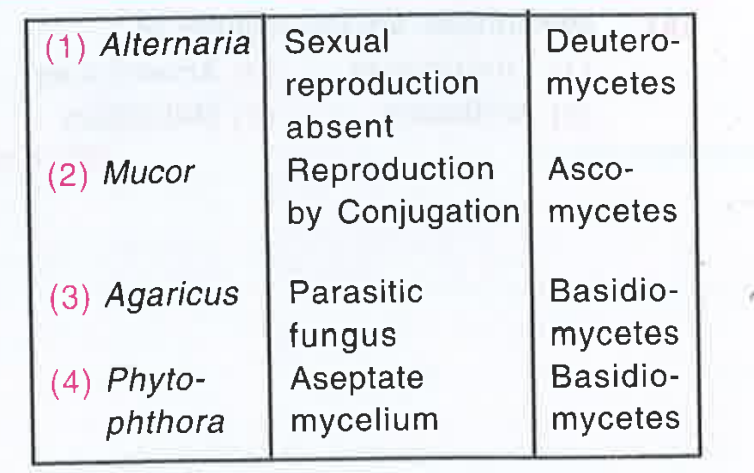
View SolutionWhich one of the following matches is correct ?
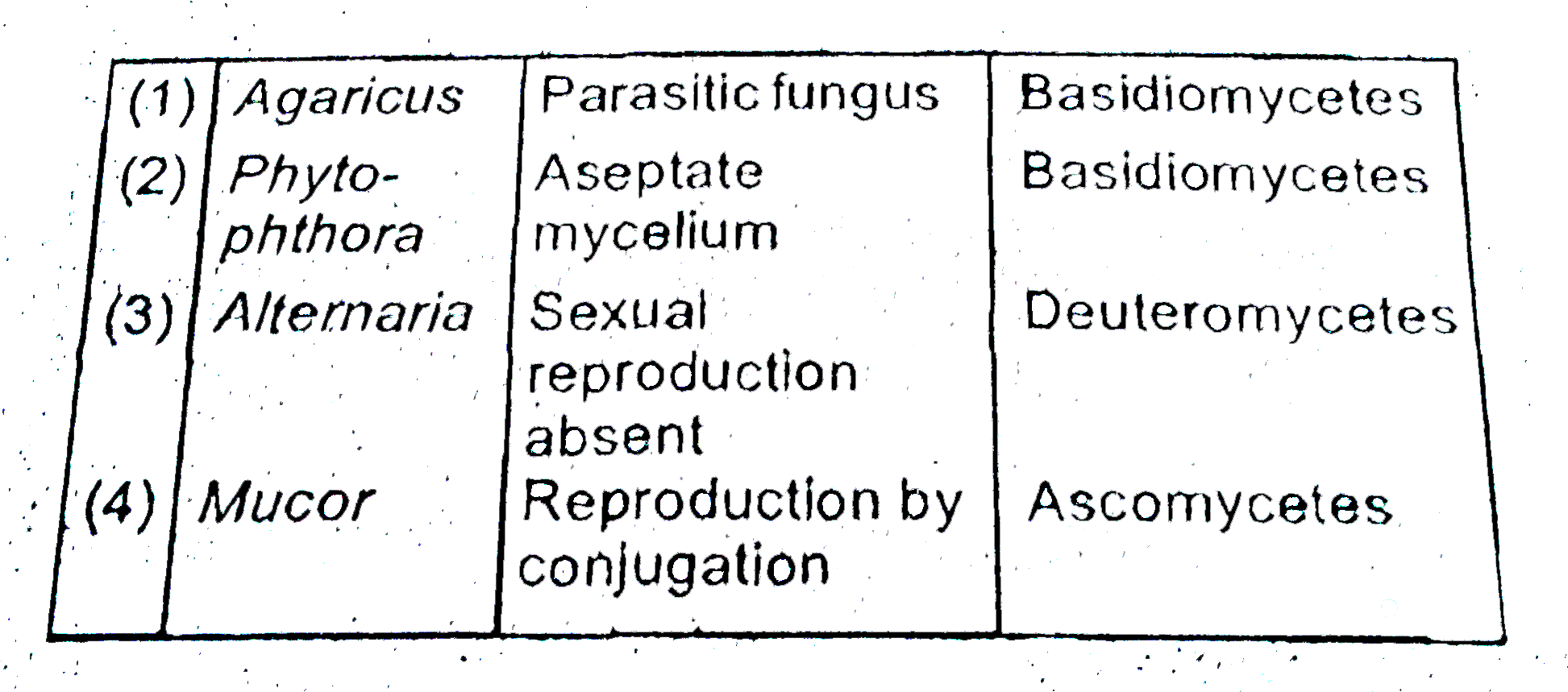
View Solution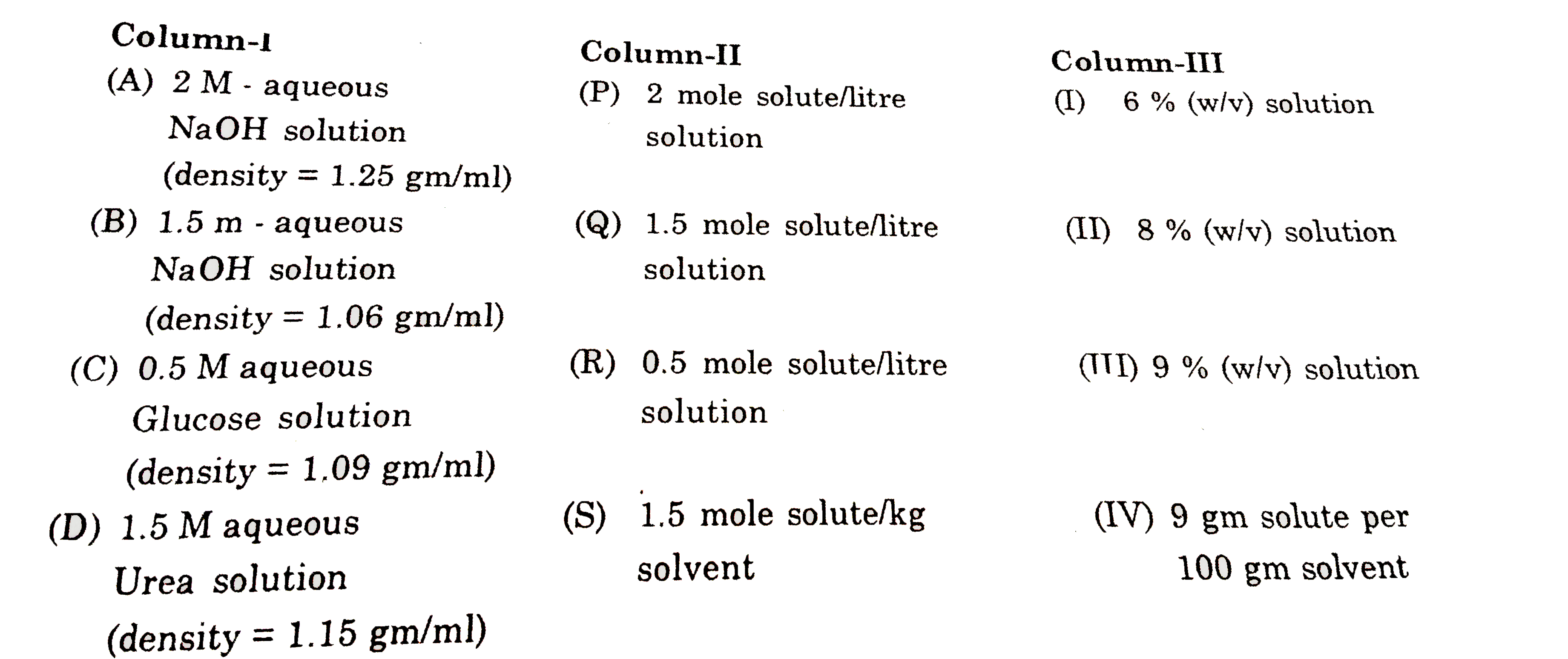
Which of the following is correct match?
View SolutionWhich of the following is correct match?
View SolutionWhich of the following is correct match?
View SolutionMatch the following, proportionally with distance according to their interaction energy.
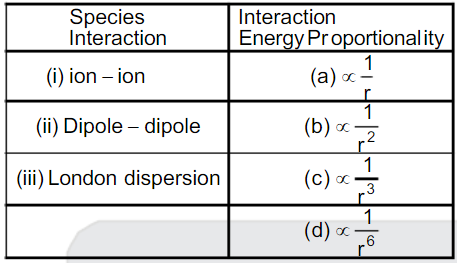
Which of the following is correct match?
View SolutionConsider the following radial distribution function diagrams. Which of the following has the correct matching of curve and orbital?
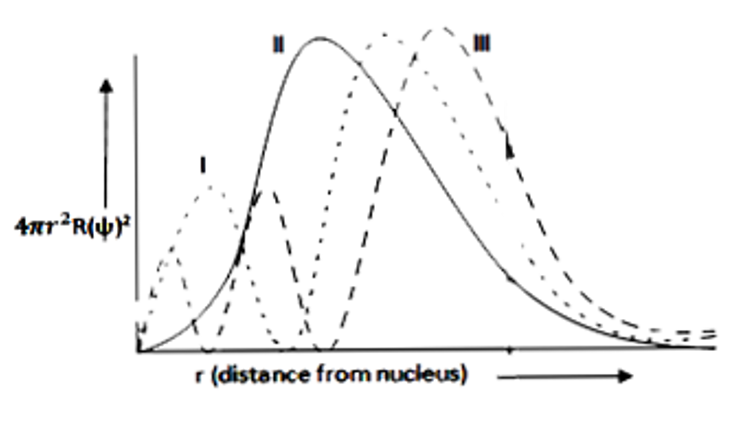
View Solution
